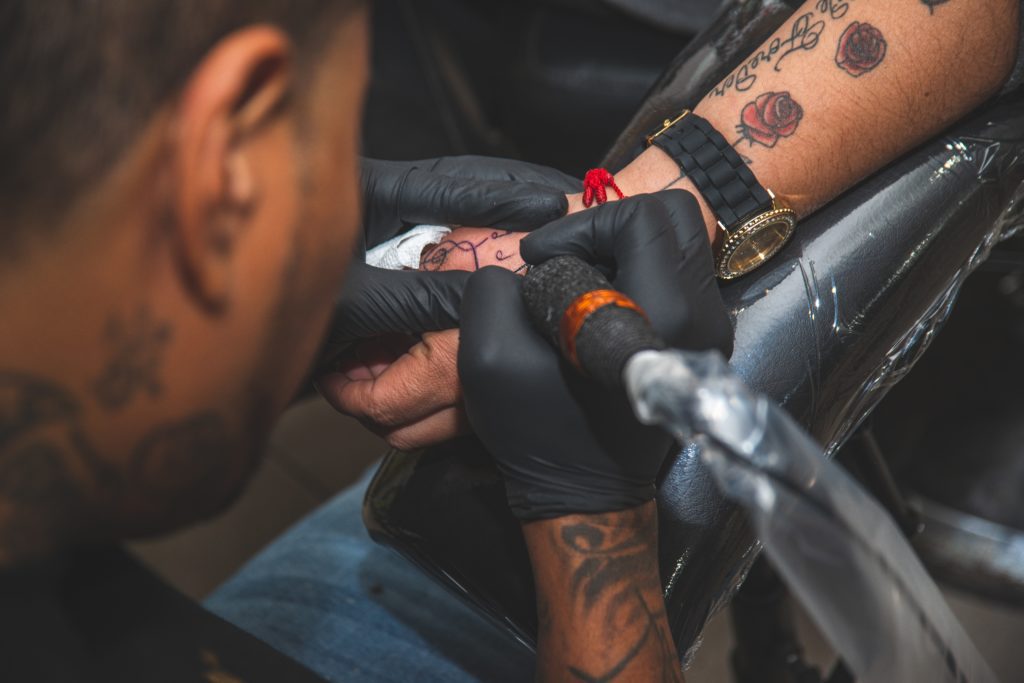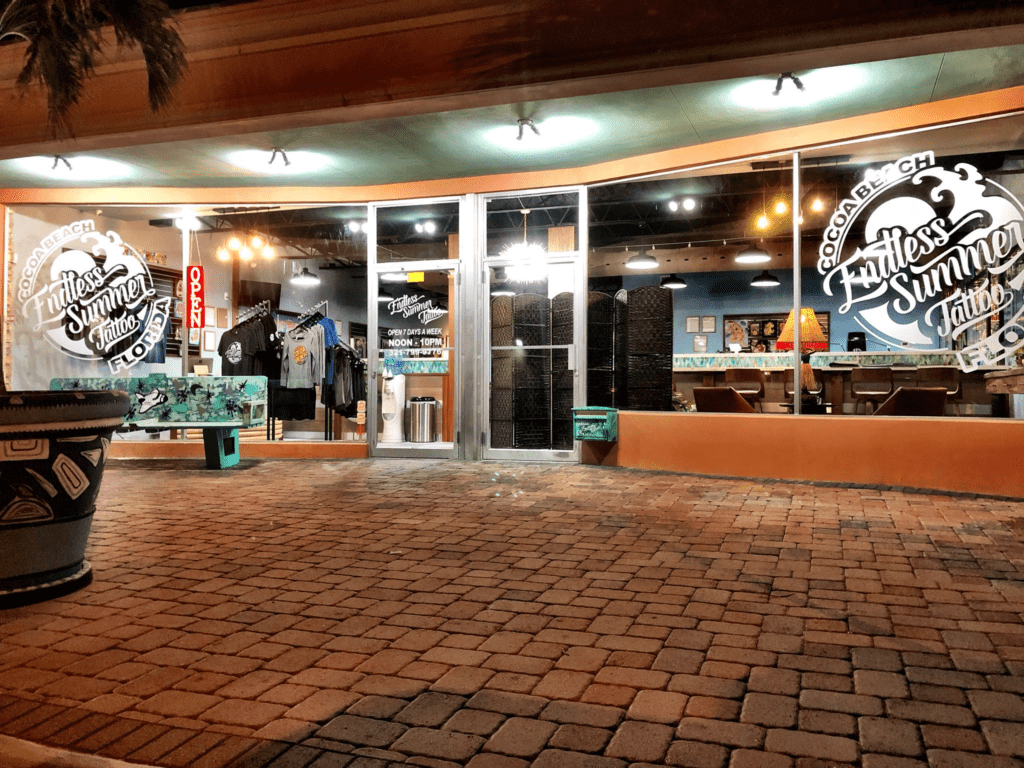Your Skin is a Canvas: Tattoo Parlors and the First Amendment
Reading Time: 7 minutes
Earlier this year, I wrote about a unique land use issue and some very specific First Amendment free speech implications related to the regulation of charitable donation bins (The Right to Blight – Charitable Donation Bins, Freedom of Speech, and the First Amendment). Very few local governments, property owners and non-profits realize the implications of soliciting charitable donations and the First Amendment.
A few months later I expanded on the “free speech” discussion by trying to explain the many intricacies and variables of free speech and signage (What Does The Sign Say? – Part I: Sign Regulations, Legal Issues and the First Amendment & Part II: Practical Solutions for Local Governments). Any business owner understands the valuable contribution that signage can make to its bottom line number, while local governments often struggle with their own ability to regulate signage in the name of aesthetics, safety and “character of the neighborhood”.
These topics are just two of many land use related issues that are intertwined with the U.S. Constitution’s First Amendment free speech protections and often lead to years of litigation, conflicting court opinions and nation-wide confusion. If you dig a bit further, a myriad of similar issues lie just below the surface. One of those that has more recently garnered the attention of regulating agencies, local governments, small businesses and courts alike involves the protections that may be afforded tattoo and piercing parlors.
Tattoos Are Constitutionally Protected Speech
The genesis of most free speech-land use issues come about when a certain type of business or activity seeks approvals to operate in a given area of a city or neighborhood. Of course, the most well-known of these controversies involve adult entertainment, religious institutions and gaming.
Over the past several years, with the popularity and tolerance of tattoos seemingly increasing, owners of tattoo (and piercing) parlors that seek to open a small business often run into frustrating roadblocks, if not outright prohibitions. Alternatively, local governments have decided to restrict the location of tattoo parlors to specifically identified areas that are most often not favorable for operation of small businesses that thrive on foot traffic and visibility, such as warehouse and industrial areas. And that’s if the City allows tattoo parlors at all.
What does that have to do with the First Amendment, you may ask?
Your Skin and the Ink Injected Into It
In 2010, the Ninth Circuit was very explicit in its determination that there is no significant distinction between a person’s skin and a piece of paper. “[A] form of speech does not lose First Amendment protection based on the kind of surface it is applied to.” Anderson v. City of Hermosa Beach, 621 F.3d 1051 (9th Cir. 2010).
While the Court found that the nature of the surface of a tattoo (your skin) and the procedure by which a tattoo is created (needles injecting ink under the skin) implicate important health and safety concerns in this age of communicable diseases, the Court also found that such regulatory restrictions do not implicate the constitutional protections afforded the speech. “We have little difficulty recognizing that a tattoo is a form of pure expression entitled to full constitutional protection.”
So if tattoos are a form of speech afforded First Amendment protections and the regulations that apply to them are viewed under the strict scrutiny microscope, what does that mean for the parlors popping up all over the country?
Buehrle v. City of Key West
In Buehrle v. City of Key West, the City of Key West contended that the location of an additional tattoo parlor in its “historic district” would further disturb the “character and fabric” of the district and would therefore negatively impact tourism.[1]
The Buehrle ruling held that municipalities may regulate and even restrict or prohibit tattoo parlors “only if the regulation (1) is justified without reference to the content of the regulated speech, (2) is narrowly tailored to serve a significant governmental interest, and (3) leaves open ample alternative channels for communication of the information.” Additionally, “the City must demonstrate that it had a reasonable basis for believing that its regulation would further these legitimate interests.”
If you read my previous blogs linked below, or if you have ever studied free speech protections afforded by the First Amendment, the Buehrle opinion should sound familiar. The regulatory scheme in question must be content neutral, narrowly tailored to serve a significant governmental interest and must allow for alternative means of expression. These guiding principles apply to signage directing you to a religious gathering, the solicitation of used clothing and shoe donations, airplane banners calling for a head coach to be fired, and a skull and cross-bones tattooed on your chest.
So, What Can a City Regulate?
Of course, Buehrle is not the only tattoo parlor-free speech case out there. Anderson v. City of Hermosa Beach (mentioned above) and Weaver v. City of Montebello are two California cases that discuss the same basic issues, including the imposition of fines and possible jail time.
What all three cases clearly state is that for a City to adopt a survivable land development code regulation that prohibits or restricts tattoo parlors, the City must show how the regulation advances its police power in protecting the public’s health, safety and general welfare. Not the character of the neighborhood as Key West tried.
Local governments must provide adequate channels of communication for this type of speech and expression. They must allow a reasonable number of available sites or areas in locations where the businesses can reasonably succeed. Equally as important, the regulations should minimize administrative discretion by decision-making authorities. For instance, conditional use permits have been found to vest local officials with unbridled discretion and conditional use permit procedures have been shown to have insufficient safeguards against prior restraint.
Tattoos are Art, Art is Speech, Speech is Protected
The lineage of cases that expound on free speech, strict scrutiny, constitutional protections, and narrowly tailored governmental interests is beyond any one blog to address. But, the elements are well-established once a form of speech is identified as warranting First Amendment protection. Art and its many forms have long been found as protected speech. The recent caselaw clearly holds that tattoos are no different, which means the people that are in the business of applying tattoos to the skins of their patrons, are no different either. Like barbershops, they may have to answer to health departments and professional licensure regulators, but they can’t be prohibited from opening a parlor just because a neighborhood is historic or may be visited by sensitive tourists. Nor can they be relegated to industrial parks or restricted so heavily that finding available storefronts is virtually impossible. As we’ve seen, regulatory schemes that go beyond the eyes of the law are ripe for challenge and likely to be overturned, no different than codes that restrict certain types of signs or certain methods of soliciting charitable donations.
For more on this topic, consider these additional blog articles which have related information:
The Right to Blight – Charitable Donation Bins, Freedom of Speech, and the First Amendment
What Does The Sign Say?
Part I: Sign Regulations, Legal Issues and the First Amendment
Part II: Practical Solutions for Local Governments
[1] As you would expect from any case involving Key West, the Buehrle opinion is definitely worth a read. Especially if you’re a fan of Jimmy Buffet’s song Margaritaville.



